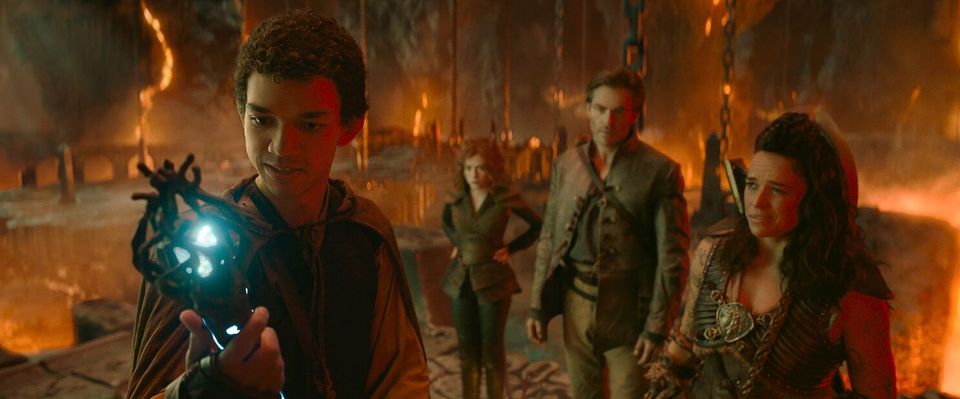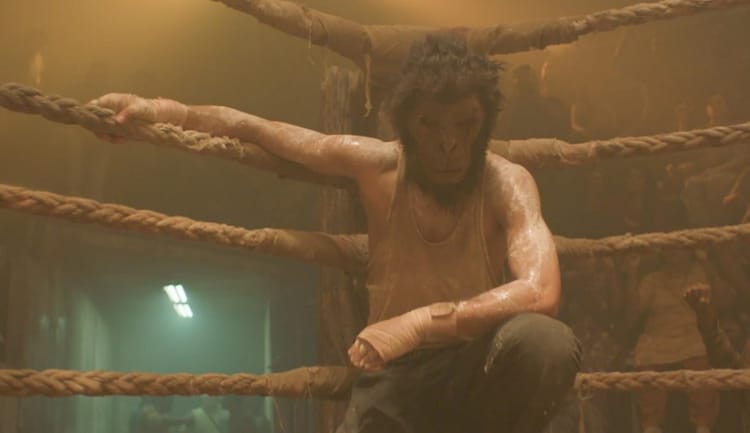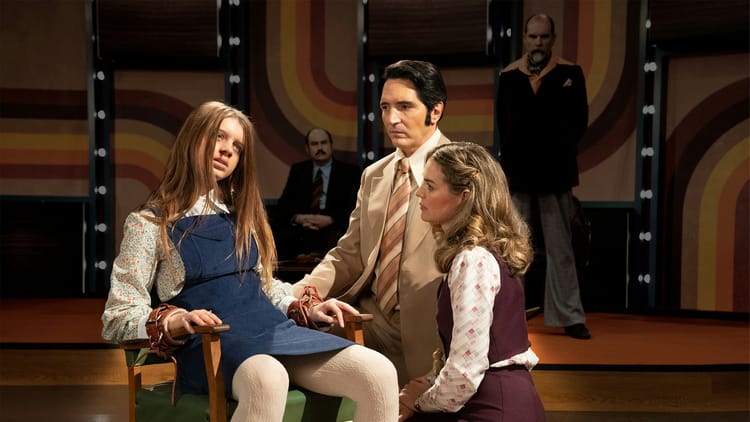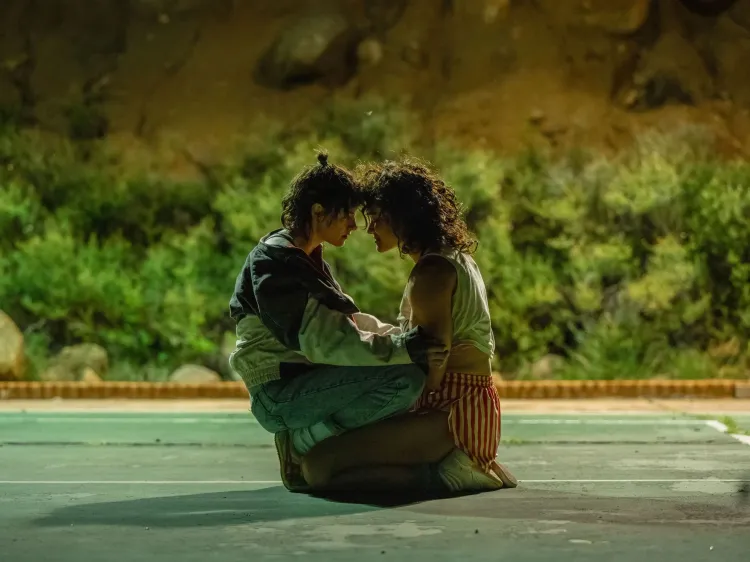Dungeons and Dragons

Over the last few years, Dungeons and Dragons has had a resurgence. It never went away, played in many a basement since its invention decades ago. But now it has left the dark, becoming a place for many a person to escape into through a global pandemic, an encroaching fascism, and a fourth season of “Stranger Things.” It has entered the mainstream, spawning games, TV shows, and podcasts across the globe. It is no longer synonymous with nerdom, so much as it is representative of a cultural shift where superheroes are in, and the D20 is a household object. So naturally, it’s time for Hollywood to cash in.
When the trailer for “Dungeons and Dragons: Honor Among Thieves” dropped, that was what it felt like. Lazy quips, splashy CGI, that same facile sardonic approach we've come to expect from our blockbusters. It was a trailer dripping with irony, that reeked of studio executives cobbling together a veritable product, rather than a film.
But much to my surprise, the end result isn't as cheap as its trailer seemed. “Dungeons and Dragons: Honor Among Thieves” is an imaginative ode to a franchise all about imagination. It isn't a brute force attempt at the box office; instead, it is like the best game plans from any D&D party: creative, unconventional, and often very, very silly.
In “Dungeons and Dragons: Honor Among Thieves,” a ragtag group of adventurers must steal from the Lord of Neverwinter for personal, political, and financial reasons. It doesn’t seem to be the most elaborate setup for a campaign. But then subquest after subquest manifests, each necessary to prepare the party for the heist. These missions take them to a Shire-like village, to an undead graveyard, to the Underdark; a subterranean pit that, as its name suggests, is under darkness. In terms of its settings, none of the locations hold a candle to the more illustrious well-known fantasy worlds of Isengard, Mordor, or even Hogwarts. They’re fairly rudimentary, especially considering how many D&D campaigns now venture across dimensions, into steampunk, cyberpunk, or space-faring adventures. In this case, the settings are merely backgrounds, sending the adventurers onwards, and providing the occasional hurdle for them to leap over.
But that is primarily where “Dungeons and Dragons: Honor Among Thieves” shines most, in the leaping. The hurdles are sometimes the problems presented to them by the adventure. And sometimes, they are the problems created by each other. Because like any dysfunctional adventuring party, the film’s motley crew step on each other’s toes. This being a movie, we know they will eventually succeed. But like in any game of D&D, the “how” is so much more exciting than the “what.” Almost every problem in the film, barring a few, is overcome in an unexpected way. This is the film's most outstanding feature and is thoroughly unpackageable for a 2-minute trailer.
The dialogue was perhaps the most worrisome aspect of the trailer, delving into the pits of Marvel-speak, characterized by the constant need to defuse tension with a “realistic” response. Egregious examples of this include “He’s right behind me, isn’t he?,” or “Well, that happened,” or in the case of this film, after a brutal showcase of martial skill from a paladin, Michelle Rodriguez’s reaction: “I’m glad he’s on our side.” But as it turns out, the line actually lands within the movie and garnered a few laughs from my audience, something that never happened whenever I saw the trailer in cinemas. The dialogue works within the context of the film’s characters, where Chris Pine’s bard, Edgin, constantly quips because he loves his own voice; Justice Smith’s mage, Simon, undercuts any moment because he lacks self-esteem; and Michelle Rodriguez’s barbarian, Holga, is constantly saying the worst thing at any point and time.
Easily the best performance is by Hugh Grant, luxuriating as the film’s smarmy villain. It’s borderline identical to the role he played in 2017’s “Paddington 2,” but it works wonderfully because Grant is just so enjoyable to watch, sneering and smirking. Michelle Rodriguez is also surprisingly entertaining as the suplexing and headbutting Holga. It’s a welcome turn for her, in a role that is far more demanding than yelling after Vin Diesel in the “Fast and Furious” films. Regé-Jean Page plays the film’s most vanilla role, Xenk, a Thay paladin who cannot understand idioms. Xenk almost represents the worst “Dungeons and Dragons” has to offer, as an overpowered character who possesses no imagination. The few fight scenes Xenk has pale in comparison to every other set-piece in the film, which are layered with idiosyncrasies or have a unique twist like when Holga brawls with five armed guards while Edgin rubs his rope shackles against stone steps. That fight tells us everything we need to know about Holga and Edgin and is infused with welcome oddities, unlike Xenk’s plain sword fights.
Is “Dungeons and Dragons: Honor Among Thieves” good because it feels like it’s a Dungeons and Dragons game? Or is it good because it is just good? Those are impossible for me to separate. The film is good because it is tightly written, performed with charisma, and an enjoyable romp. It is also good because it respects its source material and the people who love it, by emulating the best parts of the game in a different medium. Often, fan service makes for a poor adaptation, relying on references and easter eggs for applause. The best adaptations understand what is at the core of the original. Here, directors John Francis Daly and Jonathan Goldstein get that people don’t listen to hundreds of hours of strangers playing D&D campaigns because they care about the combat mechanics. They listen because there is something inherently joyful about people working together to invent new solutions to problems they may have caused. And just like the many players that have come before them, Daly and Goldstein took what seemed to be an insurmountable problem, cashing in on a beloved property, and did something truly unexpected: make a silly, accessible, and blatantly fun movie.
---
This review first appeared in F News Magazine, edited by Sid Garde.




